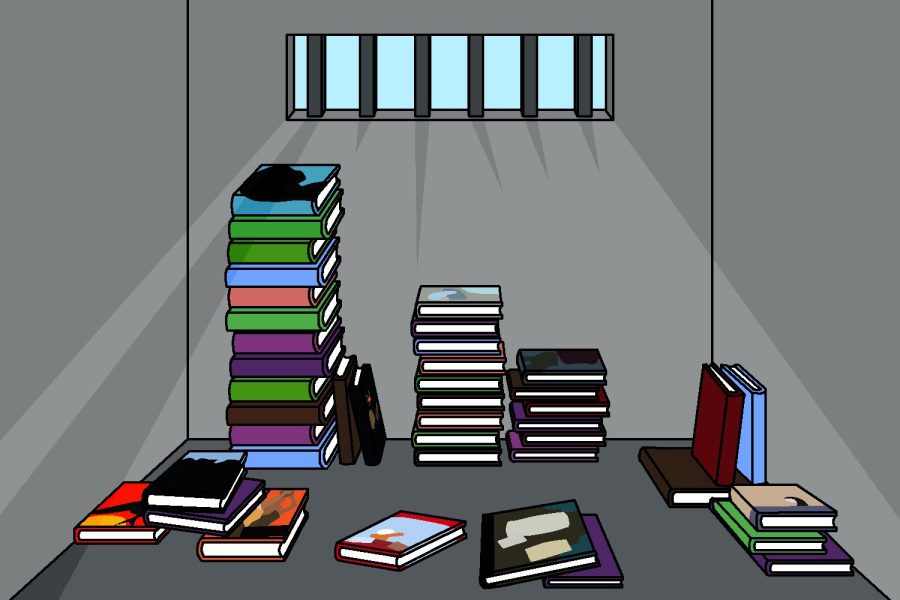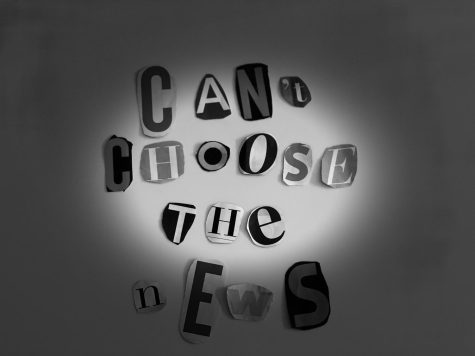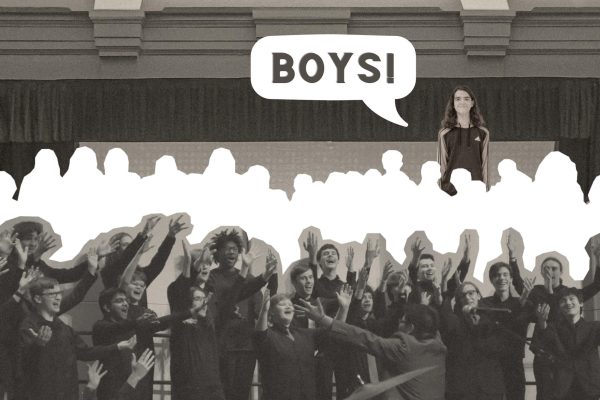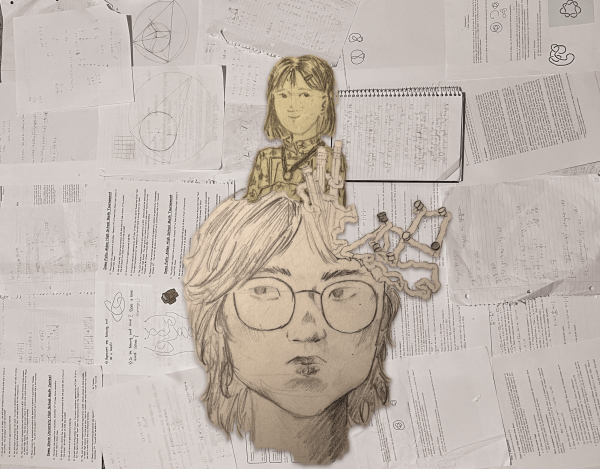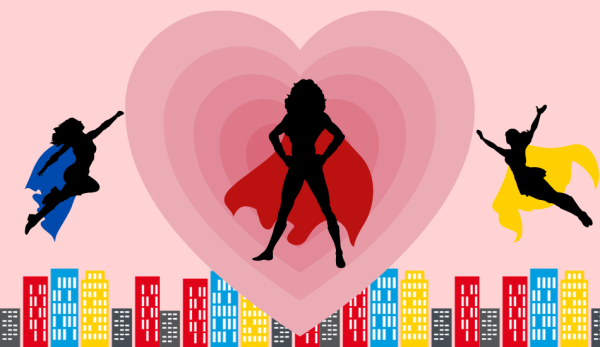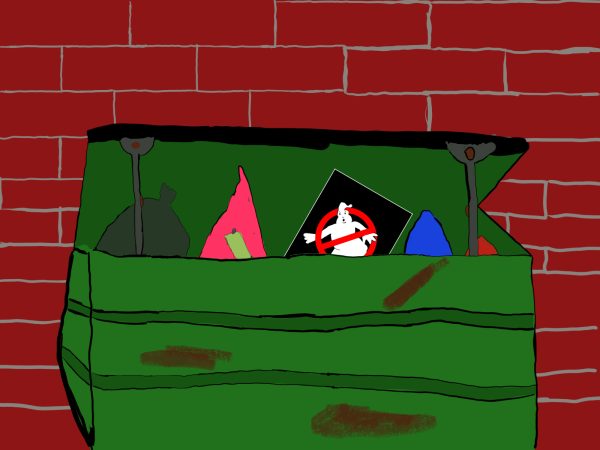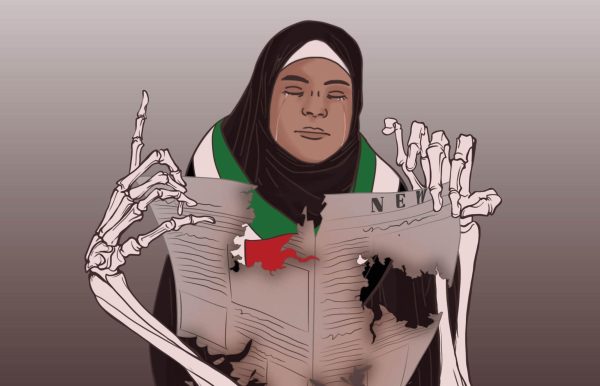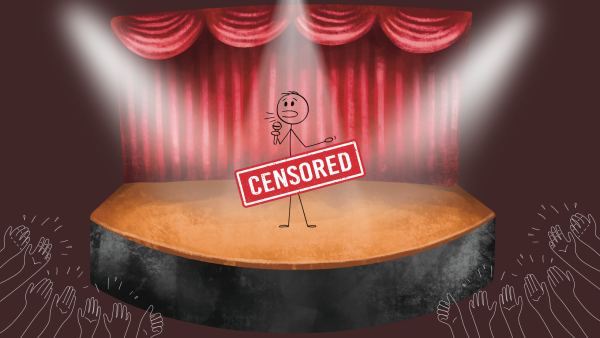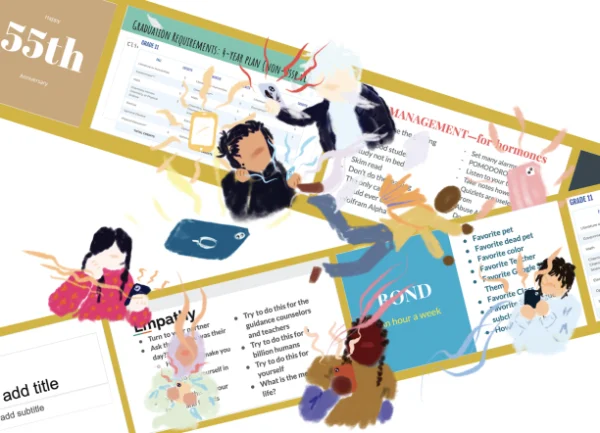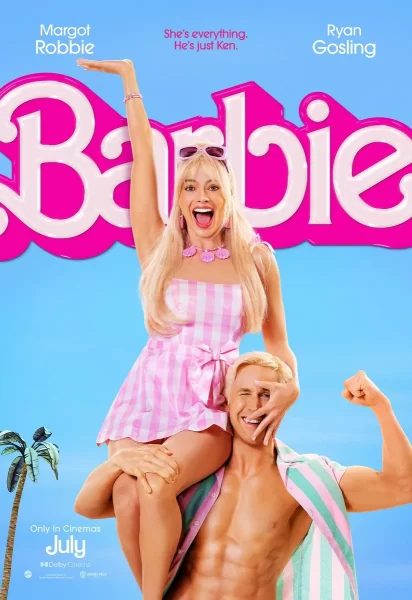The books that instill fear
As the conversation about limiting what is taught in our schools is discussed, books and the stories within them are at risk from being barred from students.
The covers of books that are being challenged in the state of Iowa depicted in a literary jail.
The banning of books and literature has been around since the first written words. From dictators attempting to destroy opposing viewpoints, to the banning of books that portray situations parents believe are not moral.
In ICCSD history there have never been any books banned from libraries; however, teachers have slowly phased select books out of the curriculum due to their content. For example, most upperclassmen and ICCSD alum will remember reading To Kill a Mockingbird during their freshman year, however, teachers have started to push teaching other books in place of this novel. Students are still able to check this book out in all ICCSD libraries. Although the teachers do not wish to censor this book from students, the new curriculum seeks to address topics of racism and race from the perspective of a POC author, and in more current pieces of literature.
The thought behind the practice of barring literature from viewers is that without the written form of these ideas, they will die out. — Paige Albright
While the ICCSD has never banned any books, the state of Iowa recently has renewed the discussion to ban specific books statewide at all public school libraries. Reasons for the proposal stem from parents fearing the books are too mature or cover content that is unfit for their children. This includes books containing explicit language, sexual content, violence, and LGBTQ+ characters or themes. Books like Buster’s Sugartime by Marc Brown, which is a part of PBS’s Arthur universe, have been challenged for containing LGBTQ+ characters. Other books like What’s eating Gilbert Grape by Peter Hughes are being challenged for referencing sexual activity.
The banning of books does not protect young readers from content that is inappropriate for their age. In practice, it stops these readers from learning about themes or topics their parents do not agree with, like homosexuality. However, banning books can cause a lack of resources for children who might relate to these stories and lessons.
If students are unable to learn about discrimination or people of color or the LGBTQ community, how can we expect them to be inclusive members of society? Their parents hope that preventing their children from accessing these books will stop them from doing the things the literature talks about. However, uneducated children are not the answer to these parents’ problems.
Your donation will support the student journalists of West High School. Your contribution will allow us to purchase Scholarship Yearbooks, newsroom equipment and cover our annual website hosting costs.

(she/her) She is a senior this year, and she is also the Co-Managing Editor and Podcast Editor for web this year. In her free time, you can find her at...

(she/her) Cassandra Michaels is a senior at West. This is her second year on the staff for the online publication as an artist. When she isn't busy she...


